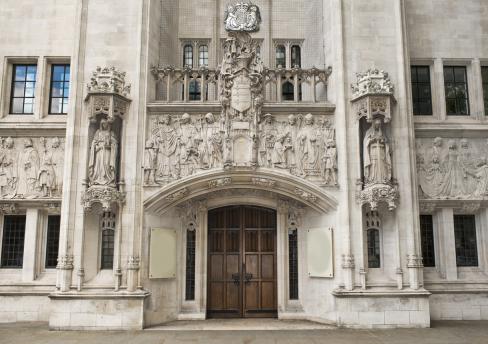
There may be occasions where someone, who is not directly involved in a court action, wants to see the papers lodged to get more detail about the case.
However this can be difficult and the parties to the case may want to ensure that this does not happen, for example, to protect against the disclosure of material which they consider confidential. The Supreme Court recently discussed issues arising in this type of situation in Cape Intermediate Holdings Ltd v Dring (for and on behalf of Asbestos Victims Support Groups Forum UK) [2019] UKSC 38.
The case involved an application to recover documents lodged in English proceedings. The Asbestos Victims Support Groups Forum UK (the Forum) was attempting to obtain documents relevant to a trial where Cape Intermediate Holdings Ltd (Cape), a company involved in the manufacture and supply of asbestos, was a defendant. Cape was defending claims seeking contributions to damages paid by a group of employers to their employees for injuries suffered as a result of their exposure to asbestos where it was argued that Cape had known the risks of asbestos but had failed to make these clear.
The case had settled after a six week trial had taken place but before a decision was issued. A large volume of documents were produced in the action. This included documents obtained on disclosure and some from public sources. The Forum wanted access because it thought that some of the documents might assist claimants, defendants and the court in understanding issues such as knowledge of the asbestos industry of dangers, research carried out and influence on setting standards in future asbestos-related diseases cases.
The application was made under the English procedure rules but its comments on the inherent powers of courts to disclose documents on the basis of the principle of open justice are of wider interest. This principle was said to be applicable throughout the UK, even through the court rules may be different. The following points can be taken from the Supreme Court's decision:
Why does the principle exist?
Its purposes are:
- to enable public scrutiny of the way in which courts decide cases and hold judges to account for the decisions they make and enable the public to have confidence that they are doing their job properly.
- to enable the public to understand how the justice system works and why decisions are taken.
What does the principle entitle you to see?
The default position is that the public should be allowed access, not only to the parties' written submission and arguments, but also to the documents placed before the court and referred to during the hearing. This should not be limited to documents which the judge has been asked to read or has said he has read.
Does open justice give anyone a right of access?
In short, no. Although the court has the power to allow access, the applicant has no right to be granted access to documents on the principle of open justice. It is for the person seeking access to explain why he wants access to the documents and how granting him this will advance the open justice principle. The court commented that the media may be better placed than others to demonstrated a good reason but others may be able to show a legitimate interest.
The court will need to carry out a fact-specific balancing exercise. Balanced against granting access will be the risk of harm which disclosure may cause to the maintenance of an effective judicial process or to the legitimate interests of others. This can include good reasons for preserving confidentiality.
What else might be relevant?
The practicalities and proportionality of granting a request will be relevant. For example, it is desirable that an application is made during a trial when material is still readily available, parties are before the court and the trial judge is in day to day control of the court process. However, with regard bundles of papers collated for use in a court hearing such as a trial (or a proof in Scotland) the court noted these documents are often marked up during the hearing and a person who had a marked up bundle could not be ordered to produce this without their consent.
The Supreme Court commented that digitisation of court processes may eventually make it easier to deal with requests by non-parties. It should also be noted that, unsurprisingly, the party seeking access will be expected to pay the costs of this.
As a postscript, the Supreme Court commented that it would urge bodies responsible for court rules in different jurisdictions to consider questions of principle and practice raised in this case. It will be interesting to see if any changes are made to the court rules in Scotland as a result of this decision.
The content of this webpage is for information only and is not intended to be construed as legal advice and should not be treated as a substitute for specific advice. Morton Fraser LLP accepts no responsibility for the content of any third party website to which this webpage refers. Morton Fraser LLP is authorised and regulated by the Financial Conduct Authority.









